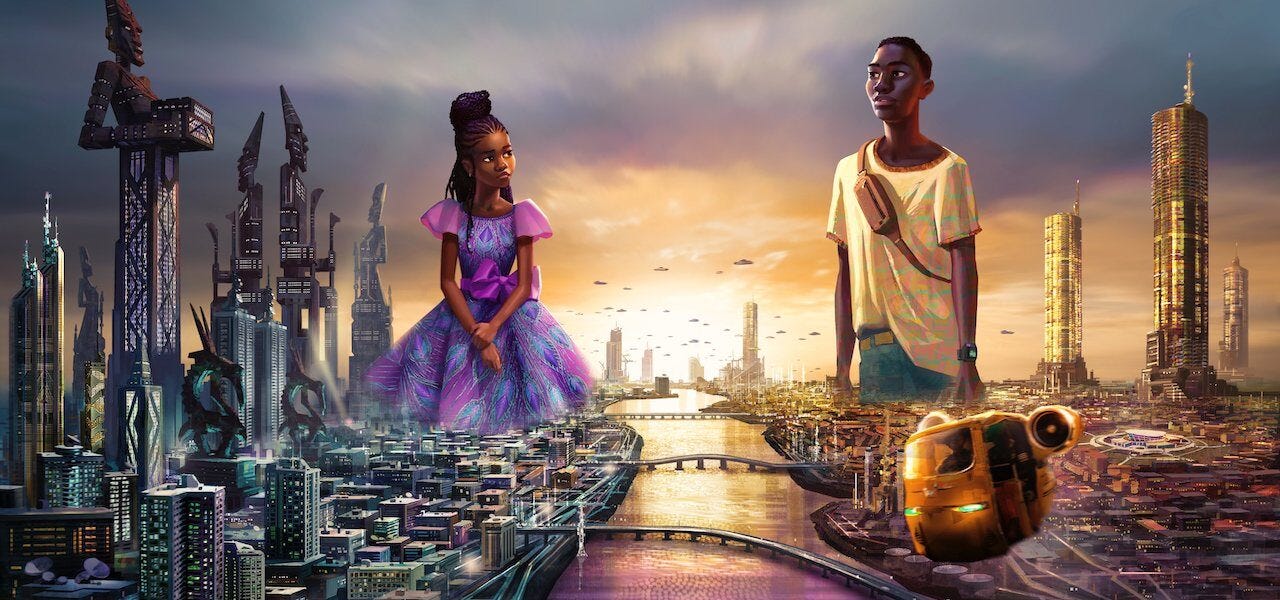Africa's First Animation, Iwájú, Secures 3 Emmy Nominations
The Emmy Awards, often dubbed the "Oscars of Television," honor outstanding achievements in the television industry and celebrate excellence across various genres and platforms. This year, a groundbreaking moment has emerged for African animation: "Iwájú," Disney's Afrofuturistic series, has secured three Emmy nominations, including a historic nod for Simisola Gbadamosi in the Younger Voice Performer category.
Understanding the Emmy Nominations
The Emmy Awards are presented by the Academy of Television Arts & Sciences, recognizing excellence in the television industry. Categories span from acting and writing to technical achievements and children's programming. "Iwájú" has been nominated in the following categories:
Outstanding Children's or Young Teen Animated Series: This category honors exceptional animated series aimed at children or young teenagers. "Iwájú" stands alongside other notable nominees, highlighting its impact and quality in children's programming.
Outstanding Younger Voice Performer in an Animated or Preschool Animated Program: Simisola Gbadamosi's portrayal of Tola Martins has earned her a nomination in this category, recognizing her exceptional voice acting talent.
Outstanding Directing for an Animated Program: Olufikayo Adeola's direction in the episode "Kole" has been acknowledged, showcasing the creative vision behind the series.
"Iwájú": A Collaborative Masterpiece
"Iwájú," which translates to "the future" in Yoruba, is a collaborative effort between Walt Disney Animation Studios and the Pan-African entertainment company Kugali Media. The series is set in a futuristic Lagos, Nigeria, and delves into themes of inequality, class divide, and resilience. It represents Disney's first collaboration with an African company to produce an original long-form animated series, marking a significant milestone in the animation industry.
Simisola Gbadamosi: A Rising Star
Born on April 17, 2011, in Washington D.C., Simisola Gbadamosi is a young actress known for her role as Tola Martins in "Iwájú." Her portrayal of Tola, a young girl from a wealthy island, has been lauded for its depth and authenticity, earning her an Emmy nomination at just 13 years old. Gbadamosi's performance brings a unique perspective to the character, resonating with audiences worldwide and inspiring young talents across Africa.
The Significance of "Iwájú" in African Animation
"Iwájú" is more than just an animated series; it signifies a new era for African storytelling in the global entertainment landscape. The collaboration between Disney and Kugali Media has paved the way for authentic African narratives to be told on a global platform, challenging stereotypes and broadening the scope of representation in animation.
Impact on Africa's Creative Economy
The success of "Iwájú" has far-reaching implications for Africa's creative economy:
Increased Investment: The series' recognition may attract more investment into African creative industries, encouraging the development of local talent and infrastructure.
Global Opportunities: With international platforms acknowledging African content, creators have greater opportunities to showcase their work globally.
Cultural Representation: "Iwájú" highlights the richness of African cultures, promoting cultural exchange and understanding through storytelling.
The Future of African Animation
"Iwájú" sets a precedent for future collaborations and productions within the African animation industry. It demonstrates that African stories, when told authentically and with high production values, can achieve critical acclaim and commercial success on the world stage.
Conclusion
"Iwájú's" Emmy nominations are a testament to the talent and potential within Africa's creative industries. The series not only entertains but also educates and inspires, paving the way for future African narratives to be told and celebrated globally. As the world anticipates the Emmy Awards ceremony, "Iwájú" has already made history, signaling a bright future for African animation and storytelling.
For a glimpse into the voices behind "Iwájú," including Simisola Gbadamosi, you can watch the following video:



